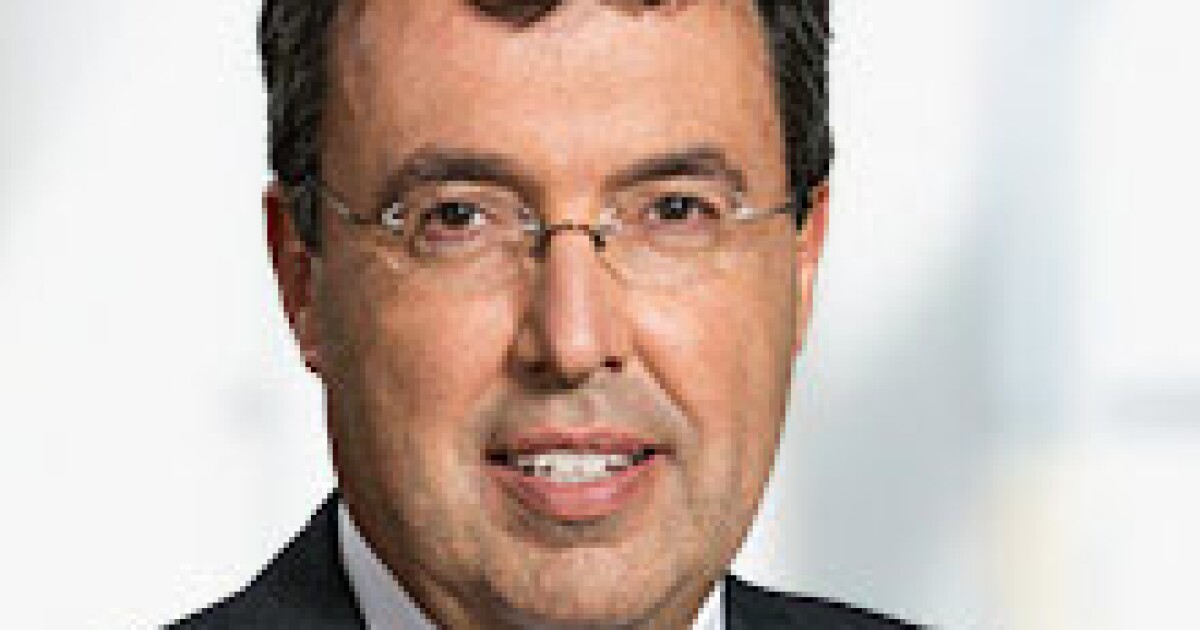Accounting
Boosting Bookkeeping Efficiency: Key Strategies for Streamlined Financial Management
Published
7 months agoon

In today’s fast-paced business world, maintaining efficient bookkeeping processes is key to staying financially organized and making sound business decisions. However, outdated practices and manual procedures can easily bog down accounting teams, draining productivity and resources. By implementing modern strategies and adopting efficient tools, businesses can streamline their bookkeeping workflows, reduce errors, and foster a more productive financial environment. This article delves into practical and effective strategies to enhance bookkeeping efficiency.
Leverage Integrated Accounting Software
Using integrated accounting software is one of the most impactful steps for streamlining bookkeeping. Cloud-based platforms allow for seamless data synchronization across different operational systems, including bank feeds, payroll, billing, inventory, and customer relationship management (CRM) tools. By connecting these systems, businesses eliminate redundant data entry, which reduces errors and provides a comprehensive view of financial activity in real-time.
A centralized platform for financial data ensures that information is updated across all systems simultaneously, giving stakeholders an accurate and current picture of the organization’s finances. Cloud-based accounting solutions also enable remote access, allowing accounting teams to work flexibly and collaborate on a secure, shared platform.
Automate Accounts Payable and Accounts Receivable
Improving accounts payable (AP) and accounts receivable (AR) processes is essential for boosting bookkeeping efficiency. Automating invoice processing, payment approvals, and scheduling payments can significantly cut down on turnaround time. Electronic invoicing and digital payments reduce the need for manual processing of paper documents, which is not only time-consuming but also prone to error.
Setting up customer and vendor profiles in a centralized database further enhances this process by providing quick access to payment terms, contact information, and transaction history. Automating AP and AR tasks, such as sending payment reminders and processing recurring invoices, can also reduce late payments and improve cash flow management, ultimately strengthening the business’s financial position.
Adopt Digital Document Management Systems
For businesses still relying on paper documentation, transitioning to digital document management systems is a critical step toward greater efficiency. Digital systems offer secure storage and provide quick search capabilities, automated retention policies, and the ability to securely share documents. By storing files in the cloud, companies can easily organize records, access them remotely, and ensure compliance with data protection regulations.
Moving away from physical file cabinets not only frees up office space but also protects records from potential loss or damage. Furthermore, digital document management helps with tracking document histories and provides quick access to past records, significantly simplifying audits and ensuring compliance with financial reporting requirements.
Standardize Processes with Documentation and Schedules
Standardizing bookkeeping processes is essential for maintaining consistency and scalability, particularly as businesses grow or experience staff turnover. Developing standardized procedures for tasks such as data entry, reconciliation, and closing schedules ensures that all team members follow uniform best practices. This improves accuracy and enables new team members to onboard more easily.
Formal documentation of accounting procedures and approval hierarchies enhances efficiency and reduces bottlenecks. When team members are clear about their roles and responsibilities, approvals can be processed faster, and unnecessary delays are minimized. In addition, setting up a routine closing schedule helps the team stay on track and complete tasks in a timely manner, leading to more reliable monthly or quarterly reports.
Conduct Regular Workflow Assessments
Periodic assessments of bookkeeping workflows are essential for identifying bottlenecks and areas for improvement. By analyzing current processes, soliciting employee feedback, and evaluating the effectiveness of existing tools, businesses can uncover inefficiencies and identify opportunities for further automation or streamlining.
Conducting regular evaluations also helps organizations stay up-to-date with technological advancements in accounting. New tools and software solutions emerge regularly, offering enhanced automation, improved data security, and additional functionality tailored to evolving business needs. Routine assessments allow businesses to stay ahead of these changes and adopt new methods to increase productivity and reduce operating costs.
Improve Cash Flow Management with Automated Bank Feeds
Automated bank feeds offer another layer of efficiency by syncing bank transactions directly with the accounting software. This eliminates the need for manual data entry and improves the accuracy of financial records. With real-time transaction updates, bookkeeping teams can perform more accurate cash flow analysis, helping businesses make informed financial decisions.
Automated bank feeds also simplify the bank reconciliation process, allowing accountants to match transactions quickly and identify discrepancies more easily. This level of automation not only saves time but also enhances the accuracy of cash flow projections and financial planning.
Invest in Training and Support
Investing in training and support for accounting software and bookkeeping best practices is crucial for optimizing efficiency. Many software providers offer training resources, tutorials, and customer support to help businesses get the most out of their platforms. Ensuring that team members are well-versed in the tools they use enhances their productivity and helps them adapt to software updates and new features seamlessly.
A well-trained team can handle day-to-day accounting tasks more effectively and leverage advanced features of accounting software to drive better outcomes for the business. Training also improves team confidence, allowing them to make better use of automation and data analysis tools.
Focus on Data Security and Compliance
With the rise of cyber threats, safeguarding financial data has become a top priority. Implementing strong data security measures, such as encryption, multi-factor authentication, and regular software updates, is essential for protecting sensitive financial information. Many modern accounting platforms offer these security features as part of their service, helping businesses comply with data protection regulations and reduce the risk of data breaches.
Additionally, routine compliance checks ensure that the organization’s bookkeeping practices adhere to industry standards and legal requirements, safeguarding both company reputation and client trust.
Conclusion
Enhancing bookkeeping efficiency requires a combination of modern technology, standardized procedures, and regular assessments. By leveraging integrated accounting software, automating repetitive tasks, digitizing document management, and standardizing workflows, businesses can create a streamlined bookkeeping process that saves time, reduces errors, and enhances productivity. While implementing these strategies may require an initial investment of time and resources, the long-term benefits far outweigh the costs. An efficient, well-organized bookkeeping system allows companies to focus on growth and make informed financial decisions with confidence.
You may like
-


Trump advisor Hassett confident tariffs will stay despite judges’ ruling
-


Credit default swaps are in demand again amid U.S. fiscal worries
-


Elon Musk says Trump’s spending bill undermines the work DOGE has been doing
-


Trump hails ‘positive’ step in U.S.-EU trade talks as markets await deal
-


Consumer confidence for May was much stronger than expected on optimism for trade deals
-


How to Implement Internal Controls to Prevent Business Fraud
Accounting
BDO CEO Wayne Berson to retire, Matthew Becker tapped as successor
Published
8 hours agoon
May 29, 2025
BDO USA CEO Wayne Berson will retire effective June 30, 2026, and the firm’s national managing principal of tax Matthew Becker has been tapped by the board of directors to succeed him.
Under the Top 10 Firm’s CEO succession process, the board of directors selects a candidate and its principal group ratifies the candidate. Berson and Becker will meet with the firm’s principals over the next several weeks ahead of the ratification vote, which is expected to take place in July. Once a successor is agreed upon by a majority vote, the board of directors will announce the next CEO, whose term is expected to begin on July 1, 2026.

Berson has served as CEO since 2012. During his tenure, the firm has grown nearly 400% to annual revenues of roughly $3 billion, and he oversaw the firm’s transition from a partnership to a corporation and then an
As national managing principal of tax, Becker oversees the strategy and operations of BDO’s tax practice, which includes over 3,500 tax professionals. He is a member of BDO’s executive leadership team and a member of BDO International’s global tax advisory committee. Becker has also served as chairperson of BDO USA’s board of directors.
The firm plans to provide no further updates until the conclusion of the voting process to ensure a “thorough and unbiased evaluation period for BDO”s principal group,” according to the release.

Pardon us; no relief in sight; down on the farm; and other highlights of recent tax cases.
San Francisco: Winery co-owner Brian Fleury, 64, of Napa County, California, has pleaded guilty to aiding and assisting the preparation of a false return.
Fleury and his spouse owned the winery Metropolitan Wines and several vineyards in Napa Valley. For tax years 2014 through 2018, Fleury underreported Metropolitan’s income to his tax preparer. Fleury directed some customers to pay with checks directly to Fleury instead of to Metropolitan and wrote or told his employees to “off the books,” on some of these customers’ invoices. Fleury kept these payments for himself and did not report this as income.
Between 2014 and 2018, he underreported his and his spouse’s income by $822,450.
Fleury also admitted that from 2007 through 2019, he failed to pay federal excise tax that was due on brandy he received, possessed and sold, filing annual reports with the U.S. Department of the Treasury, Alcohol and Tobacco Tax and Trade Bureau that he knew were false.
In total, he caused a tax loss to the IRS and TTB of $211,092.
Washington, D.C.: President Trump has pardoned Paul Walczak of Palm Beach Gardens, Florida, two weeks after Walczak’s
Walczak, who was convicted of evading more than $10.9 million in payroll taxes and sentenced to 18 months in prison and two years of supervised release, controlled a network of interconnected health care companies operating under various names, employing more than 600 people.
In 2011, Walczak did not pay two quarters of withheld taxes to the IRS. He evaded collection efforts and continued not paying over taxes from employees’ paychecks and keeping the money to fund what authorities called a lavish lifestyle, including the purchase of a yacht.
He caused a total federal tax loss of $10,912,334.80 and was also ordered to pay $4,381,265.76 in restitution.
Walczak is the son of Betsy Fago, a longtime Republican donor who recently attended a Trump fundraising dinner,
Trump was slated to pardon reality show stars
Athens, Georgia: Tax preparer Jessica Crawford, 34, who previously
FBI agents investigating a multistate unemployment benefit scheme that was conducted during the pandemic discovered texts between conspirators and Crawford, a preparer with Crawford Tax Services. Crawford filed for PUA benefits on behalf of those individuals who had created fake businesses or submitted false information to steal benefits. In return, she received a percentage of the gains.
In 2022, an undercover IRS agent met Crawford to have their taxes prepared, and Crawford asked if the agent did anything on the side. At first the agent said no; Crawford replied that expenses could be deducted. The agent said he sometimes mowed an aunt’s lawn but provided no income or expense amounts. Crawford created a Schedule C business for landscaping on the agent’s federal return and prepared a 1040 and a fictitious Schedule C loss of $19,373, as well as claimed an Earned Income Tax Credit, a Child Tax Credit and a qualified business income deduction. As a result, the agent’s return claimed a fraudulent federal income tax refund of $12,359.
The IRS reviewed 1,261 returns filed by Crawford in tax years 2020 and 2021 and determined that she fraudulently filed returns on behalf of clients, resulting in losses to the IRS exceeding $3 million from false 7202 credits for sick leave and family leave, tax credits and dependent care credits.

Marina Del Rey, California: Elana Cohen-Roth, 81, a retired IRS agent, has been sentenced to 12 years in prison after being convicted of 23 felony offenses related to defrauding an elderly victim of her life savings.
Cohen-Roth exploited a professional and personal relationship she’d had with an elderly area resident. A retired IRS agent and professional tax preparer, Cohen-Roth began preparing the then 66-year-old victim’s taxes in 2013. From their friendship, Cohen-Roth gained access to all the victim’s financial information. Cohen-Roth told the victim she would invest in some type of real estate to earn at least 10% at “no risk.”
From December 2013 through September 2019, Cohen-Roth extended “investment opportunities” to the victim on more than 20 occasions in amounts from $25,000 to $150,000. Each time, the victim took money from her legitimate investments and wired it to Cohen-Roth.
Bank records revealed that Cohen-Roth was running a Ponzi scheme where other investors also deposited large sums into her account. Cohen-Roth used some of the elderly victim’s money to pay off these earlier investors and used the rest to support her lavish lifestyle and make gifts to family members.
By September of 2019, the victim had depleted her investment accounts and took out a reverse mortgage to send additional money to Cohen-Roth. The scheme collapsed in 2020 when the victim demanded a return of some of her money so that she could move near her family. Cohen-Roth did not have another source to repay the victim, who did not receive any of her money back.
A jury convicted Cohen-Roth of all 23 felony financial fraud charges. Because of her age, she was sentenced to the middle term of 12 years in state prison rather than the maximum of 28 years.
Richmond, Virginia: Tax preparer Baltej Singh Brar, 42, of South Richmond Hill, New York, has been sentenced to two years in prison for making false statements on loan applications he submitted for clients through pandemic relief.
Brar owned and operated Aspire Tax & Accounting Services and in 2021 began filing loan applications on behalf of other individuals through the Paycheck Protection Program. He advertised that he would file loan applications in exchange for an upfront fee and 10% of the loan value after approval.
Brar instructed prospective applicants to provide him with their Social Security numbers, a copy of their driver’s license, email address, prior bank statements, their 2019 return and a voided check to be used as supporting documentation. Most of Brar’s clients were sole proprietors, including taxi drivers, truck drivers and construction workers. Where clients’ prior year incomes fell below the threshold to receive the maximum PPP loan of $20,833, Brar inflated the income amounts in the applications. Brar caused the Small Business Administration at least $550,000 in losses.
Greensburg, Pennsylvania: Accountant Jonathan A. Weston, a resident of Canonsburg, Pennsylvania, has been sentenced to 27 months in prison and ordered to pay more than $8 million in restitution after being convicted of fraud conspiracy, conspiracy to commit money laundering and filing false income tax returns.
From October 2005 to January 2019, Weston, an accountant for Hillandale Farms Co., schemed with another employee to embezzle some $6.8 million from the company and launder the money through businesses they both controlled to buy collectible cars, real estate and other items.
Between 2013 and 2018, Weston also either failed to file or filed false federal personal income tax returns, including filing a false return in which he underreported more than $500,000 stolen from Hillandale.
He was ordered to pay $6,870,128 in restitution to Hillandale Farms and $1,216,176 to the IRS. He was also ordered to forfeit assets from his crime, including a 2008 Aston Martin, a 1933 Ford Model 40 Coupe and a condominium.


The more value that investors can receive in the form of long-term capital gains rather than ordinary income, the less they will pay back to Uncle Sam.
Those in the 20 counties below ranked by the average net capital gains reported on their federal returns to the IRS are getting above-average appreciation on their assets with much lower tax rates, generally, than their incoming income,
For financial advisors and their clients, the list provided
“Net capital gains represent the profits a taxpayer recognizes from selling a capital asset after offsetting capital losses. These gains are often created by highly appreciated assets,” Kathy Buchs, a senior tax advisor, team leader and managing director with Cleveland, Ohio-based registered investment advisory firm
“We take geography into account when advising clients to sell an asset or consider tax loss harvesting due to
That difference in tax rules at the state level raises the possibility of strategies such as an incomplete gift non-grantor trust that, in some areas, could “eliminate the state taxation of the trust-owned portfolio,” said Richard Austin, an executive director for estate and business planning with San Diego and Waltham, Massachusetts-based RIA firm
“Tax efficiency significantly impacts the performance of a client’s portfolio by maximizing the after-tax return on investments,” Austin said. “Investing across different countries and regions can reduce portfolio volatility. Markets in different parts of the world often have low correlation, meaning they don’t always move in the same direction at the same time. If one market experiences a downturn, others might perform well, potentially stabilizing overall returns and the potential for future capital gains. State-specific tax rates impact tax efficiency of a portfolio. The difference in state income taxes creates a significant layer of complexity in achieving tax efficiency for a client’s portfolio.”
Even though any type of data presents the possibility of noise factors affecting any particular region, the study “highlights that taking geography into account is essential when advising clients on their asset allocations,” said Michelle Ash, a senior wealth advisor with the Jacksonville, Florida-based office of RIA firm
“Net capital gains is measured when a person is selling assets, and so it requires past investment success to be in that position,” Ash said in an email. “It’s no surprise to me that Florida would be the top state by this metric. Florida has no state income, inheritance or estate taxes, and so it’s a beneficial place to live when you’re selling assets. These Florida traits also attract a lot of retiring individuals who may be selling assets like homes and businesses when they retire or move.”
In focusing on capital gains, SmartAsset sought to home in on the areas where investors netted the most gains with preferential rates compared to ordinary income, according to the report’s author, SmartAsset Director of Economic Analysis Jaclyn DeJohn.
“Net capital gains, the profits from selling assets like stocks, real estate or businesses, are a key measure of investment success
Besides the listing below, here are some of the other interesting takeaways from the study:
- Three Georgia counties, Chattahoochee, Quitman and Taliaferro, displayed the smallest average net capital gains, at $2,400 or less. Fewer than 10% of returns in the counties had net capital gains.
- At the state level, West Virginia tax returns had the lowest average net capital gains at $14,612, followed by Wisconsin with $19,590 and Iowa with $20,220.
- On the other end of the spectrum among the states, federal returns out of Florida ($84,911), Wyoming ($84,246), Nevada ($77,491), the District of Columbia ($58,733) and Texas ($52,926) reported the highest average net capital gains.
Scroll down the slideshow for the ranking of the top 20 counties in the U.S. in terms of average net capital gains. To see a list of the top 10 cities with the highest income among retirees,
Note: The below rankings are based on a report by SmartAsset called, “

U.S.-China talks ‘stalled’ and need Trump and Xi to weigh in, Bessent says

BDO CEO Wayne Berson to retire, Matthew Becker tapped as successor

Tax Fraud Blotter: Side hustles

New 2023 K-1 instructions stir the CAMT pot for partnerships and corporations

The Essential Practice of Bank and Credit Card Statement Reconciliation

Are American progressives making themselves sad?
Trending
-

 Accounting1 week ago
Accounting1 week agoHouse tax bill includes provision eliminating PCAOB
-

 Economics1 week ago
Economics1 week agoWhat happens if the Inflation Reduction Act goes away?
-

 Personal Finance1 week ago
Personal Finance1 week agoWhat House Republican ‘big beautiful’ budget bill means for your money
-

 Accounting1 week ago
Accounting1 week agoTrump tax bill faces Senate’s arcane rules, desire for changes
-

 Finance7 days ago
Finance7 days agoPersonal finance app Monarch raises $75 million
-

 Economics1 week ago
Economics1 week agoA court resurrects the United States Institute of Peace
-

 Economics1 week ago
Economics1 week agoHow much worse could America’s measles outbreak get?
-

 Economics1 week ago
Economics1 week agoCalifornia has got really good at building giant batteries
